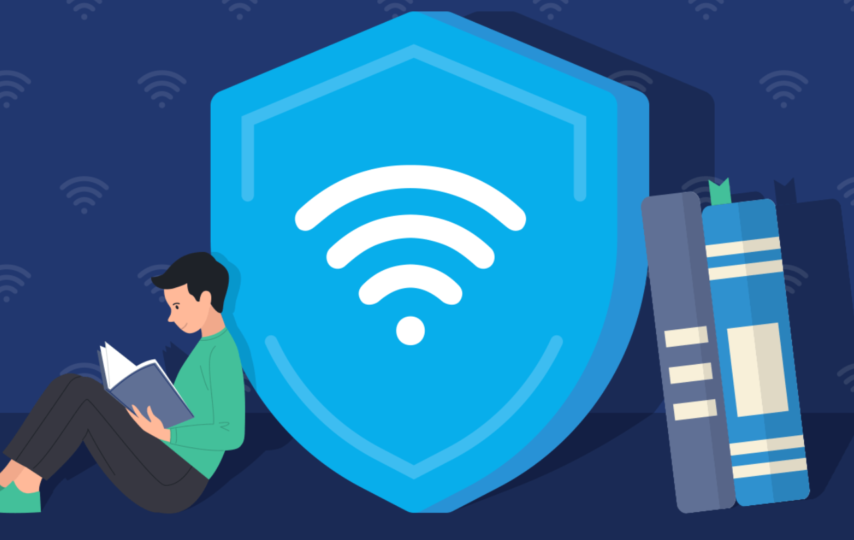Are you concerned about the safety of your online information? You should be. In today’s digital age, it seems like nothing is ever safe from prying eyes. From hackers trying to steal your credit card information to the NSA allegedly snooping on your emails, it can feel like there’s nowhere to hide.
But is all this paranoia justified? In this article, we will take a look at some of the dangers that lurk online and see how serious they really are. We will also discuss ways that you can protect yourself and keep your information safe. So if you’re ready, let’s get started.
Phishing Scams
One way people have their information stolen is through phishing scams. Phishing occurs when a criminal tricks you out of your your personal information by posing as a reputable company or organization. You’ll get an official-looking email that looks like it’s from your bank, for example, which asks you to update your account information.
If you click on the link, you will be taken to a fake website that looks almost identical to the real thing. The only difference is that the fake website will ask you to enter your personal information, such as your credit card or social security number. Once you enter this information, the scammer will then have access to it and can use it to fraudulently charge your credit card or commit identity theft.
Phishing scams can be very difficult to spot, so it’s important to be vigilant when you are online. If you receive an email that looks suspicious, do not click on any links or open any attachments. Instead, go to the source and contact the company to see if the email is legitimate. You can also visit their website yourself to check for any announcements or messages.
Hacking
Another serious threat to your online security is hacking. Hackers are people who use their computer skills to gain unauthorized access to someone else’s computer or network. They may do this for any number of reasons, such as to steal sensitive information or to vandalize the system.
Hacking can be very difficult to detect, as hackers often use sophisticated methods to cover their tracks. If you think that your computer has been hacked, it is important to act quickly and take steps to secure your system. Change all of your passwords, run a virus scan, and install security software if you don’t already have it.
Identity Theft
Identity theft is another serious concern when it comes to online safety. Thieves may open new credit card accounts in your name, for example, or apply for loans using your social security number.
Identity theft can have a ruinous impact on your life. It can ruin your credit rating and leave you with massive debts. It can devastate your chances of getting a job, loan, or apartment if someone chooses to run a background check on you. As such, so it’s important to do everything you can to prevent it from happening in the first place.
There are steps you can take to protect yourself from identity theft. First, never give out your personal information online unless you are absolutely sure that the website is secure. Second, use strong and complicated passwords for all of your online accounts and make sure to change them regularly. Lastly, keep a watchful eye on your credit report and watch for any unusual activity.
Spyware
Spyware is a software that is installed on your computer without your knowledge. It can be used to track your online activity or collect sensitive information, such as your passwords or credit card numbers. Spyware can also be used to hijack your web browser and redirect you to unwanted websites.
Be careful when downloading free programs, as many of them come bundled with spyware. Only download software from reputable websites, and make sure to read the fine print before installing anything.
You should also install anti-spyware on your computer and keep it up to date.
Viruses
A virus is malicious software that can replicate itself and spread to other computers. Viruses can do a variety of different things, such as delete files, damage your hard drive, or even steal your personal information.
Viruses often come from email attachments or infected files from the internet. As such, it’s important to be careful when opening email attachments and only download files from trusted websites. You should also have security software installed on your computer and ensure it is always up to date.
There are a number of different ways to protect yourself from viruses and other online threats. First, be careful when opening email attachments and only download files from trusted websites. Second, install security software on your computer and keep it up to date. Finally, make sure to run a virus scan on your computer regularly.
Conclusion
The internet can be a dangerous place, and there are a number of different threats that you need to be aware of. These include hacking, identity theft, spyware, and viruses. You can do several things to protect yourself from these threats, including using strong passwords, installing security software, and running regular virus scans. So don’t let your guard down; take steps to protect yourself online every day.



